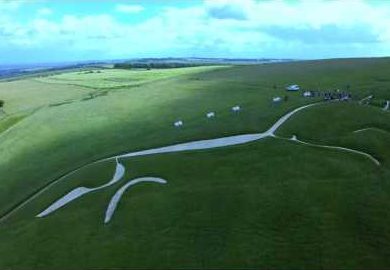Plans to carve a white horse in a protected area of downland near Folkestone, Kent, may be shelved after the European Commission began legal proceedings against the government.
The construction of the millennium landmark was due to begin next month, after the end of a battle between Shepway District Council, which wanted to mark a “gateway to Europe”, and English Nature, which argued that the downland area is a Site of Special Scientific Interest (SSSI).
English Nature was also concerned that carving the horse would result in a loss of habitat and could pave the way for developers to build on other SSSIs.
Stephen Byers, then secretary of state for transport, local government and the regions, overruled English Nature and granted planning permission. However, the European Court action could lead to fines for the government of up to £14,000 for every day that it fails to restore the habitat to its original condition.
Local opinion is generally in favour of the project. Councillor Rory Love says: “We’ve had a public inquiry and we’ve gone through the proper channels. The people of Folkestone want this horse.”
Plans involve fixing chalk panels into the soil rather than carving into the underlying rock, to minimise erosion and to facilitate maintenance.
There are 17 white chalk horses in Britain, most of which were carved in the 17th and 18th centuries, although the Uffington horse in Oxfordshire is 3,500 years old. Edgehill in Warwickshire had a series of red horses until 100 years ago, carved into the local ironstone.
|
Read more news in this week’s Horse & Hound (22 May), or click here to subscribe and enjoy Horse & Hound delivered to your door every week. |




